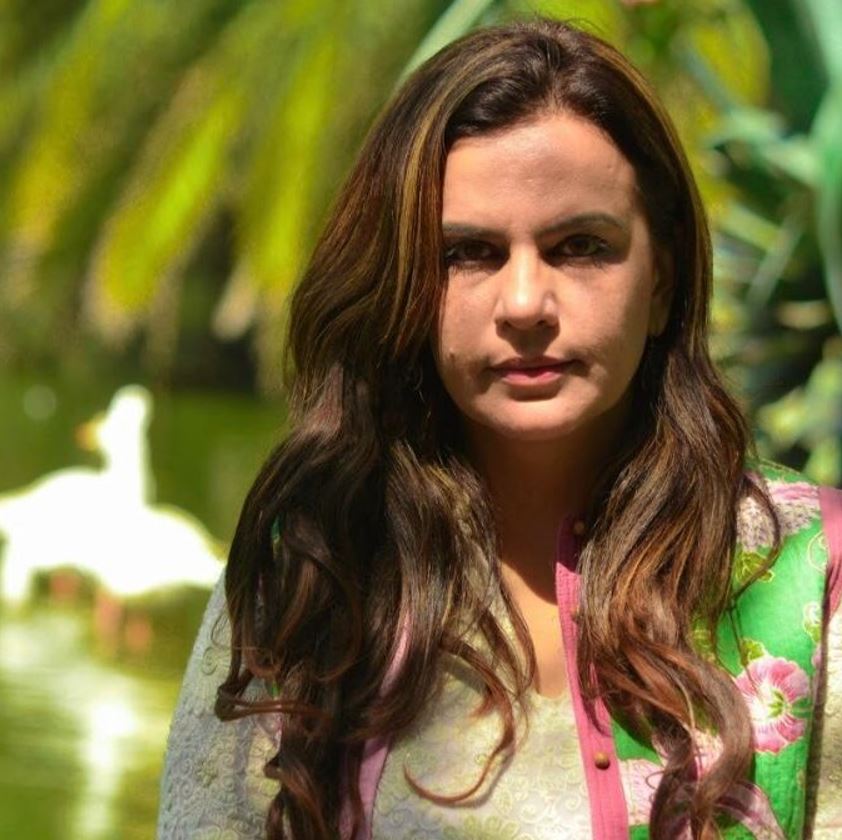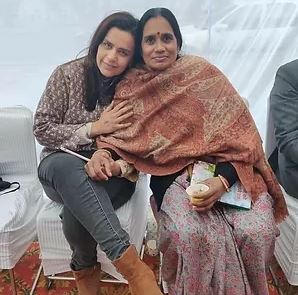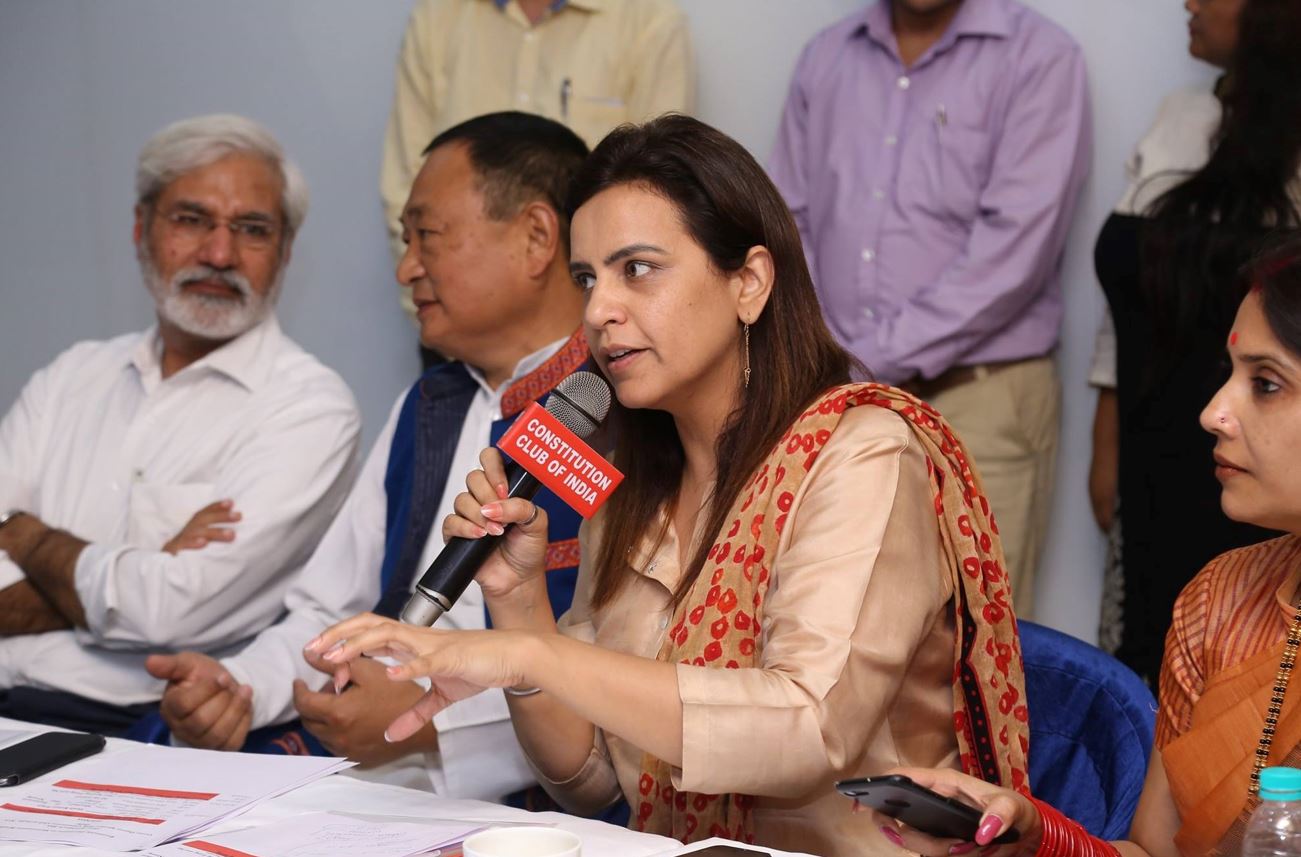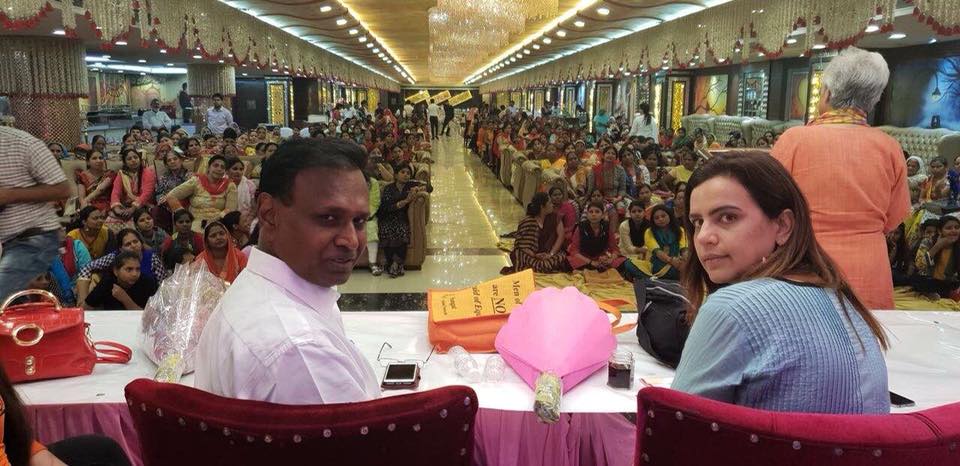(June 8, 2022) On the cold December night of 2012, 22-year-old Nirbhaya was brutally raped inside a moving bus, an incident that sent shockwaves across the country. Back then, Yogita Bhayana, who is widely acknowledged as the face of the Nirbhaya movement from 2012-2020, did not know her but like many of us grappled with accepting the sheer inhumanity that came to the forefront that night. What affected her deeply was the fact that she happened to be in the same mall at the same time, where Nirbhaya had been on the last night of her life, before the gruesome crime took place.

Yogita Bhayana, anti-rape activist
“Lakhs of people came out on the roads to express their solidarity. The protests near Jantar Mantar continued for months, the numbers came down to thousands, then hundreds, but I was there even when the number of protestors could be counted on the fingers,” says the anti-rape activist in a conversation with Global Indian. Yogita is one of three women whose efforts were highly recognised during the trying days that followed. Other two being, Chaya Sharma, the then Deputy Commissioner of Police (south) Delhi and lawyer Seema Kushwara.
Yogita also spearheaded the protests and campaigns to change the juvenile justice law age limit for rapists from 18 years to 16 years, which led the Rajya Sabha to eventually pass the bill in 2016. Besides the Nirbhaya movement, she has continuously been at the forefront protesting against other high profile rape cases – including the Delhi Cantt rape case and Hathras gangrape case.
From a thriving aviation career to activism…
A proper Delhiite, Yogita started her career in aviation with Sahara and Kingfisher Airlines to “earn pocket money.” But she knew her “true calling was somewhere else.” Known for her interest in social work, she was inclined towards social activism from an early age. From teaching children under a tree outside her house to winning awards for raising maximum funds for senior citizens as part of school fund raising campaigns, she was at the forefront of bringing about a change.

Yogita Bhayana with Nirbhaya’s mother, Asha Devi
But things took a turn when she witnessed a harrowing road accident of a security guard. Not only did the perpetrator run away but no one came forward to help the victim. “I carried the severely injured man to the hospital and called his family. But it was too late by then and he succumbed to his injuries. What I discovered was that not only people hesitate to help others but the government hospitals are not sensitive or equipped to handle emergency situations. It took hours before the treatment began, by then it was too late. The poor man died leaving behind his wife and three children aged between one – five years,” reveals Yogita, who was deeply affected by the heart-breaking incident.
With no prior exposure to dealing with government hospitals and the police as a witness, it took a toll on her as she couldn’t sleep for nights after the incident. “I made efforts to arrange financial help for his wife and children,” adds Yogita, who quit her job at the airlines to start something that enhances lives of people around.
Stepping into action
Soon she started her NGO – Das Charitable Foundation – to help victims of road accidents as well as help solve other problems of the weaker sections of the society. It was around the same time that the social worker armed herself with a master’s degree in disaster management from Guru Gobind Singh Indraprastha University.

Yogita Bhayana – at the forefront
But it was the shocking Nirbhaya gangrape that prompted her to start People Against Rape in India (PARI) campaign with the aim to provide rehabilitation, justice and safety to rape victims and their families.
It takes time in the country to get justice. Despite so much of public and media glare, in the Nirbhaya case, it took almost eight years for the criminals to get hanged – Yogita Bhayana
Beaconing hope…
For years, Yogita has looked into hundreds of rape cases fighting for legal aid, compensation, rehabilitation and justice but she calls Nirbhaya case “different” as the world took cognizance of it. “However there are many cases where there is no support for the victim. I started receiving many SOS calls from such victims after Nibhaya case. It made me realise how lives of lakhs of women, from little babies to those who are even senior citizens, have changed forever after being raped. The wait for justice is so long. To keep their hopes on the judiciary alive becomes a big challenge,” she says.

Encouraging to resist and report
While she cannot guarantee justice, Yogita always promises to give these women her voice. All the cases have their own set of complexities. Dealing with new complications each time and many-a-times being the only one to represent in the court is what the activist deals with. The roadblocks and constant delay in justice makes it hard for the family members to keep up the fight. “They give up,” says Yogita.
Prevention of rape is significant
We do not realise but threat of rape and sexual harassment exists even in places we cannot think of – Yogita Bhayana
As the Prevention of Sexual Harassment (POSH) expert helping women overcome sexual harassment at their work place, Yogita has been motivating them to tap their hidden reserves of courage and mettle by resisting and reporting it. “It is for working women of both organised and unorganised sectors, whether she is a CEO or domestic help,” she adds. Serving as an independent member of the Internal Complaints Committee (ICC), she is associated with Delhi High Court, Delhi State Legal Services Authority, Cement Corporation of India Limited, Winter Halter India Private Limited, Pooja Finelease Limited, and Décor Asia conducting gender sensitisation training at corporate houses and PSUs.

Yogita Bhayana with Baba Ramdev, Sadhguru and others
“I charge for workshops in corporate houses to make both ends meet. Otherwise, I have been helping poor victims by spending from my own pocket or through help of friends. It’s only recently that I have started requesting for donations,” says the anti-rape activist who is deeply inspired by Mother Teresa, Medha Patkar and all grassroots social workers.




